Blogging means writing content strategically to rank on Google and get visitors from search results.
That’s a short answer I would give based on being a full-time blogger for the past 3 years.
But the reality is that it goes much deeper than just writing about random topics and expecting income.
Let’s have a comprehensive look at what blogging really is and what bloggers actually do.
Spoiler: It requires hard work and writing every day.
1. The Role of a Blogger
In the early internet days, bloggers mostly shared personal stories to entertain others.
This was easy then because there were no social channels like YouTube or TikTok.

Having a blog was a rare achievement since few knew programming.
Basically, there was no competition.
Now, starting a blog is quick and simple with pre-made solutions, such as Wix or WordPress.
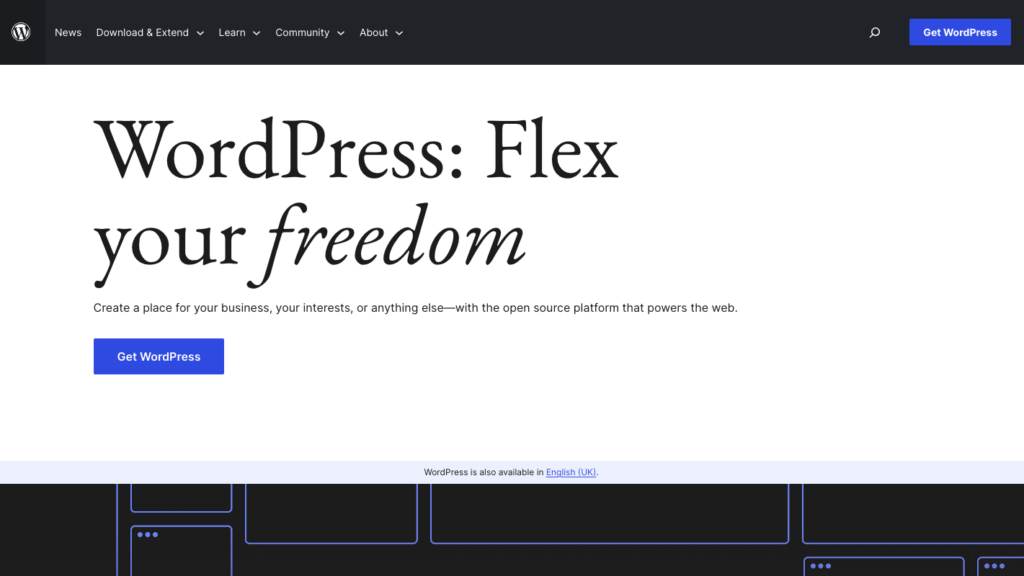
Thus, there are millions of blogs with personal posts and other types of random content.
But thanks to the rise of social media channels, these types of blogs aren’t getting any reads anymore.
People entertain themselves using social media.
But people still read blogs, for sure. The landscape has just changed.
Today blogging is more like a business than art. It’s all about writing posts that solve people’s problems.
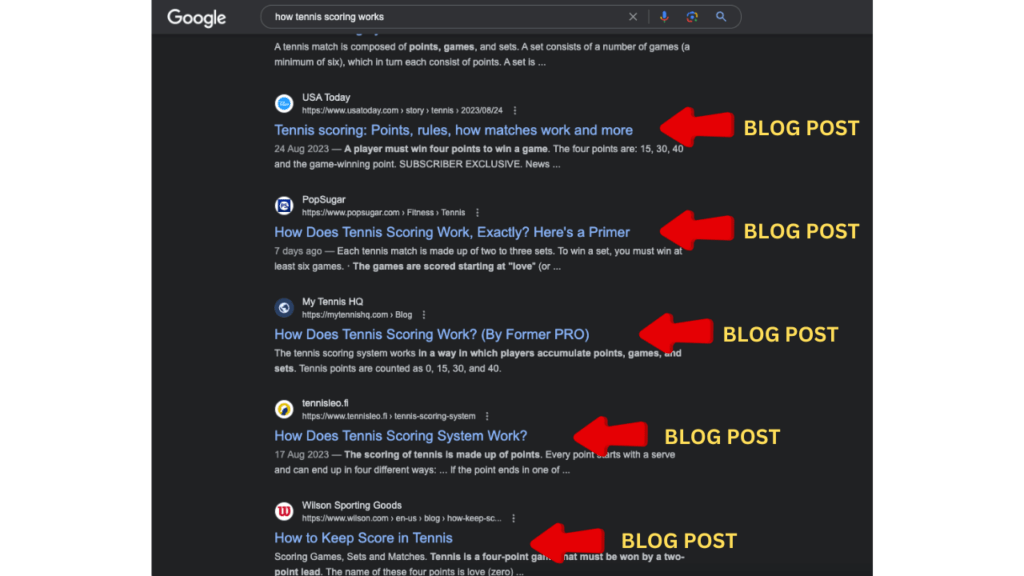
A successful and monetizable blog is aimed at addressing readers’ needs, offering solutions like “How to lose weight” or “Best tennis shoes for kids”.
These are topics that people search for in masses from search engines like Google.
2. Finding Topics
Successful bloggers don’t generally choose topics off the top of their heads.
Instead, they usually rely on Google to find relevant topics that have tons of search volume.
Google suggestions are a blogger’s best friend.
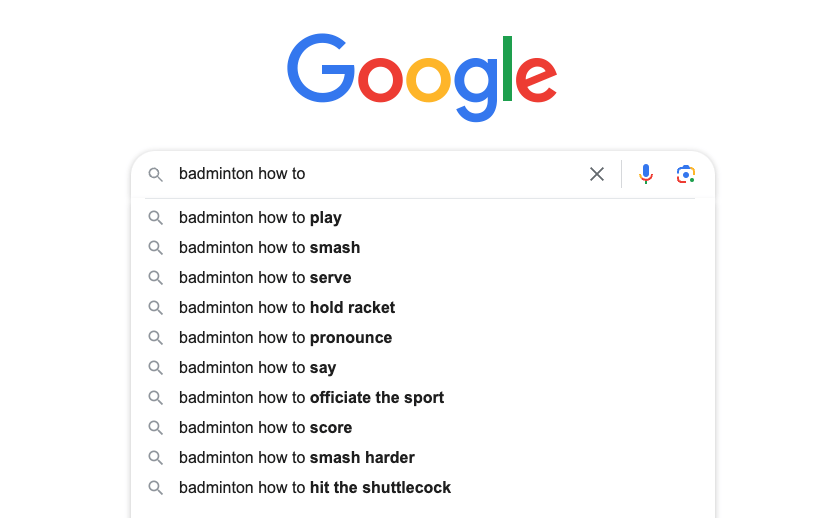
When you type in something on Google, you will see a ton of suggested topics.
These are not just great guesses made by Google, but also good blog post topics.
🤔 Out of the ~1,000 blog posts I’ve written, I’ve only come up with 10-20 topics myself and the rest comes from Google or other blogs.
In this sense, blogging is more of a science than art.
3. Building a Blog
Once bloggers find a list of potential topics, they must do some simple search analysis to figure out if the topics are worth writing about.
For example, on a topic like “Best hotels in Paris”, there’s clearly too much competition on Google results.
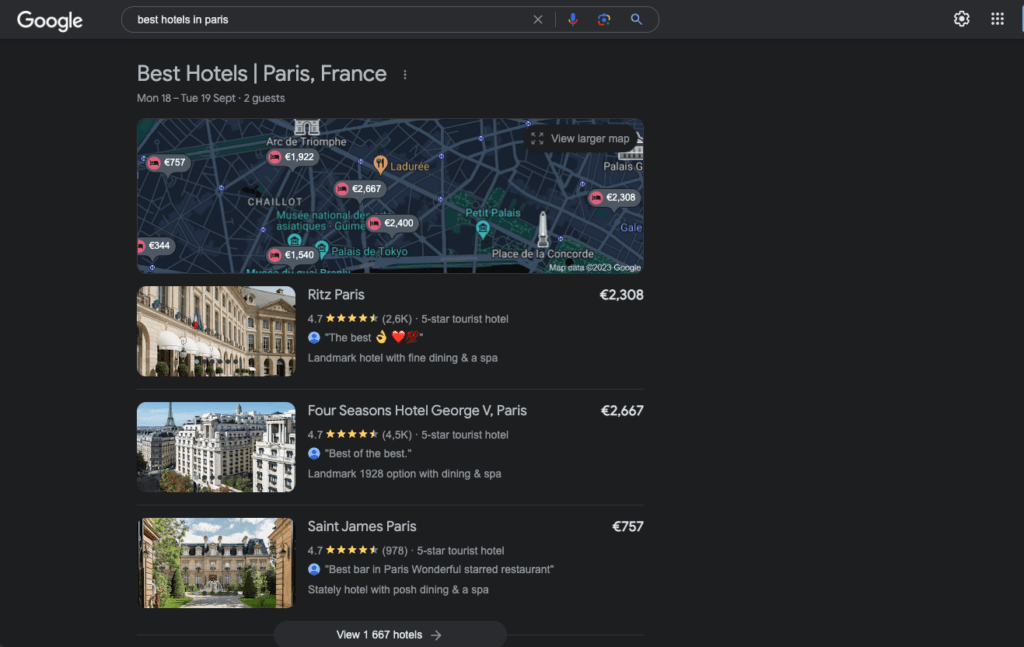
Before seeing any blog posts, there’s a big map widget, tons of ads, and other search boxes.
A skilled blogger can instantly tell that this is a too competitive topic to have chances to get traffic for.
The search analysis process is simple and based on common sense.
But it’s something bloggers need to do before writing. Usually, it takes 5-10 minutes at most, though!
If a topic is saturated or competitive, standing out becomes hard.
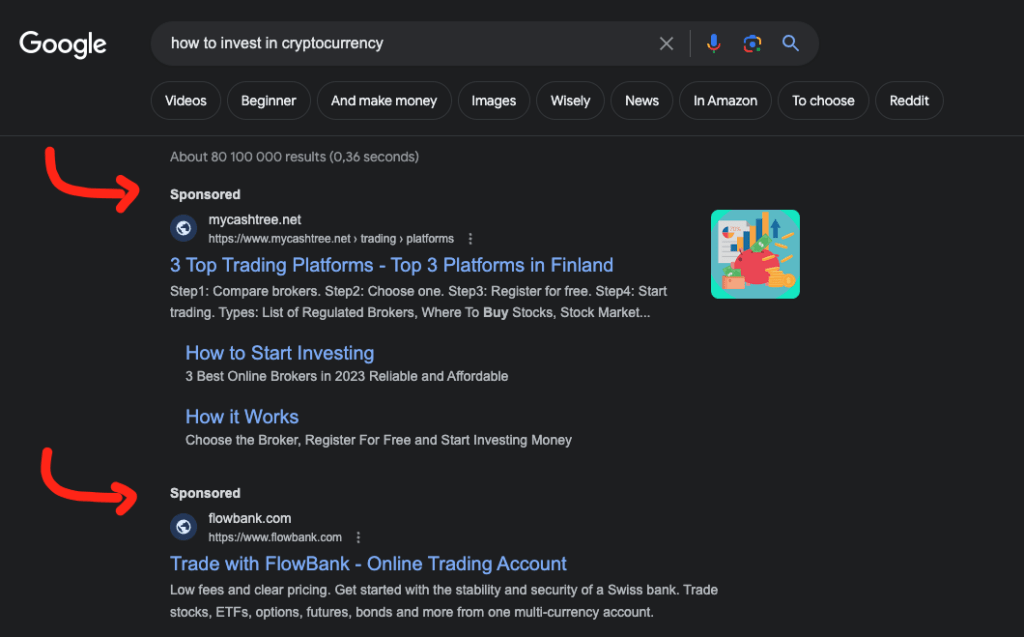
In those cases, a blogger might choose not to write about the topic.
But if there are no quality posts about a topic, the blogger might write a post about it and have a great chance of getting some visitors.
And here’s where it gets interesting.
For a post to rank high, Google needs to consider it the best post about the topic on the internet.
But nobody knows with 100% accuracy how that works. Instead, it’s all about guessing based on what’s ranking right now.
Bloggers typically analyze the top 5 search results and put together a post with the characteristics of those top 5 pages.
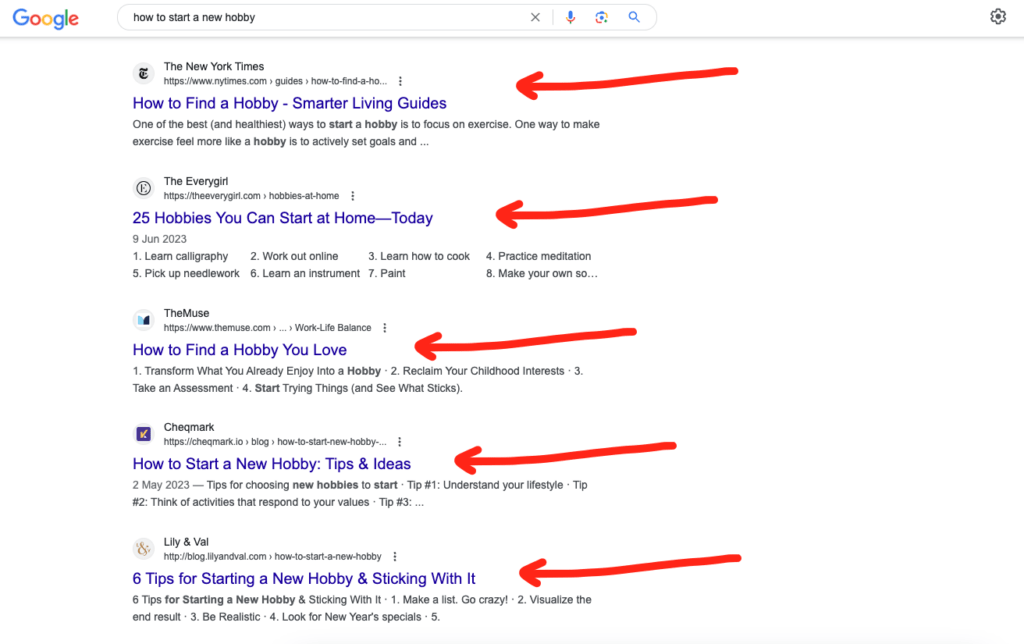
It definitely makes no sense to spend days writing a single post.
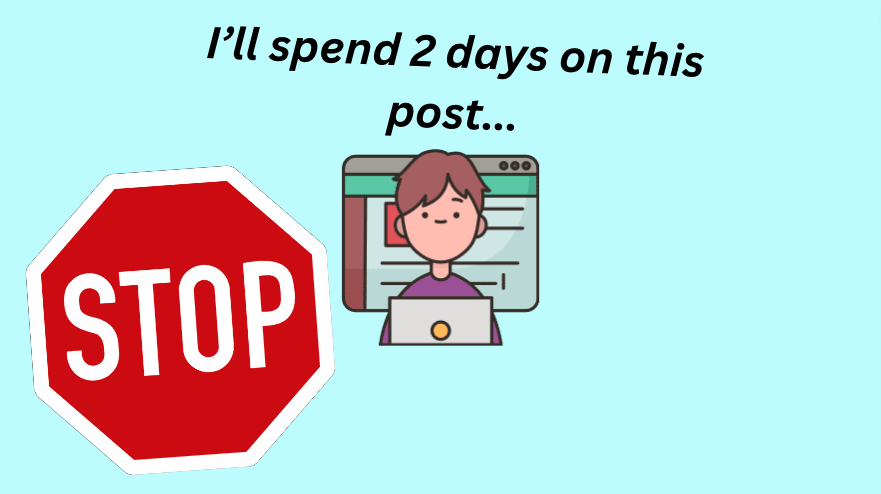
Usually, the goal is to choose a topic where it’s possible to write quality posts within 2-5 hours.
This is because it’s not a guarantee that a post will rank high.
Also, Google wants the top-ranking pages to have a ton of niche-specific content. Thus, it’s crucial to write hundreds of posts to cover a niche completely to build trust.
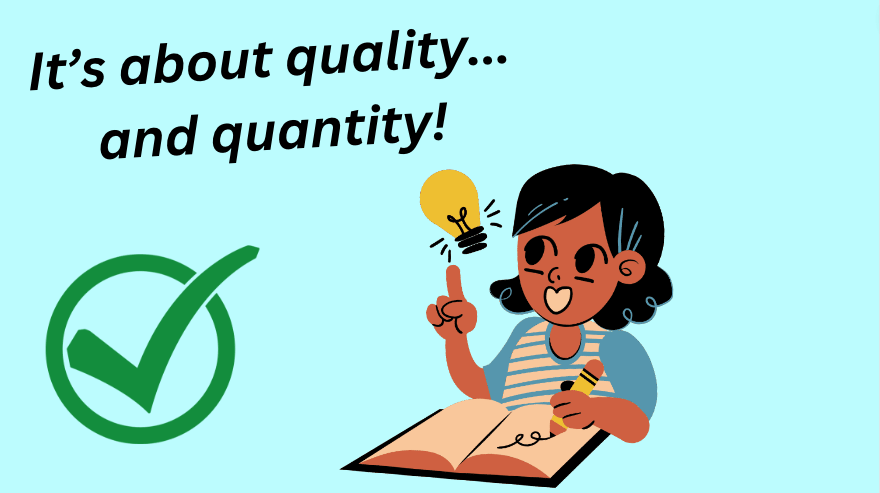
4. How Bloggers Write Content
Blogging is all about writing a ton of quality posts.
Each blog post should be like a small business. It needs to solve a problem better than anyone else.

Let’s take a look at the main aspects that bloggers need to consider before writing a post.
#1 Understandability
But it’s not about being a skilled writer or a novelist.
Instead, it’s all about solving problems in an easy-to-understand fashion.
Thus, bloggers never use tricky language, complex sentences, or hard vocabulary.
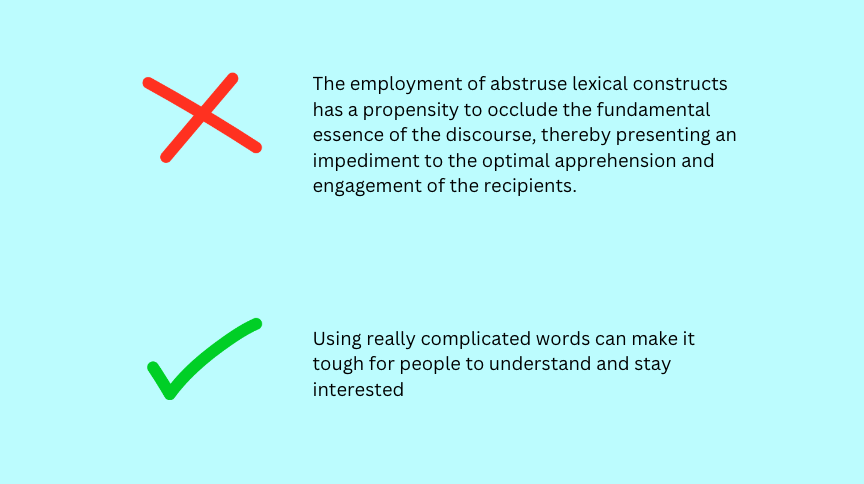
Every word needs to add value or be part of solving a problem.
There’s no longer room for jargon.
That being said, blog posts still usually need to be super long! Google prefers content that covers a topic in detail.
This is why you commonly see posts that are up to 10,000 words in length rank at the top of the search results.
But writing is just one part of the process.
Structuring and making the post is vital these days too. Nobody will read a wall of text anymore!
#2 Visuality
These days people are becoming more and more visual. Thus, every post needs to have a ton of images and visualizations to support learning.
For instance, below you can see how I use images in a disc golf review.
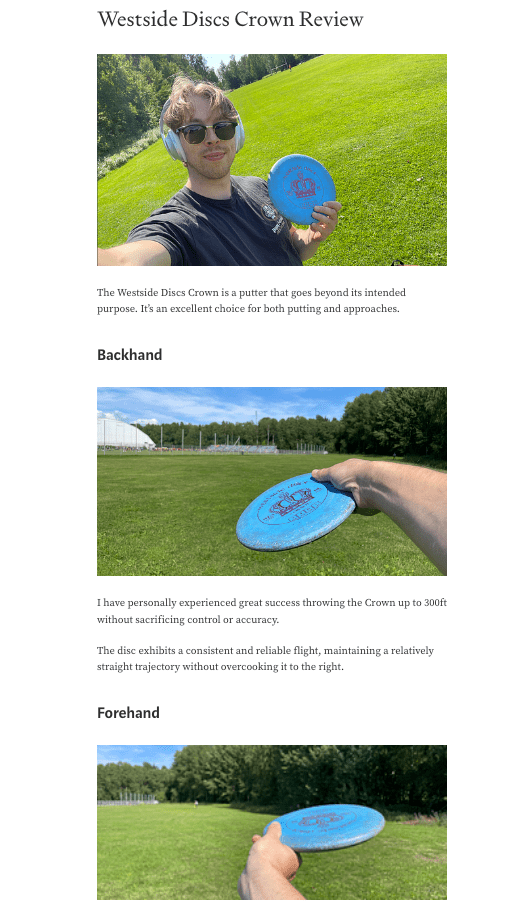
These images are basic pictures that I took with my mobile device.
No professionalism is needed here!
The point of images in blog posts is not to look visually impressive. Instead, they are there to support the content and make it more enjoyable to read.
Images break up the text nicely and can provide additional context to the readers.

At the end of the day, the main goal of blogging is to solve visitors’ problems.
I commonly add 20-50 images per blog post. Those non-visual text-only posts will never rank high anymore.
#3 Skimmability
People don’t read blog posts from A to Z anymore.
This is because they’re looking for solutions to their problems. As soon as they find the answer, it’s time to bounce.
Bloggers try to make the information as accessible as possible.
Thus, every post needs to be “skimmable”.
In other words, it needs to have an easy-to-navigate structure.
This happens by using headings, subheadings, lists, tables, numbered lists, images, and other such formatting elements.
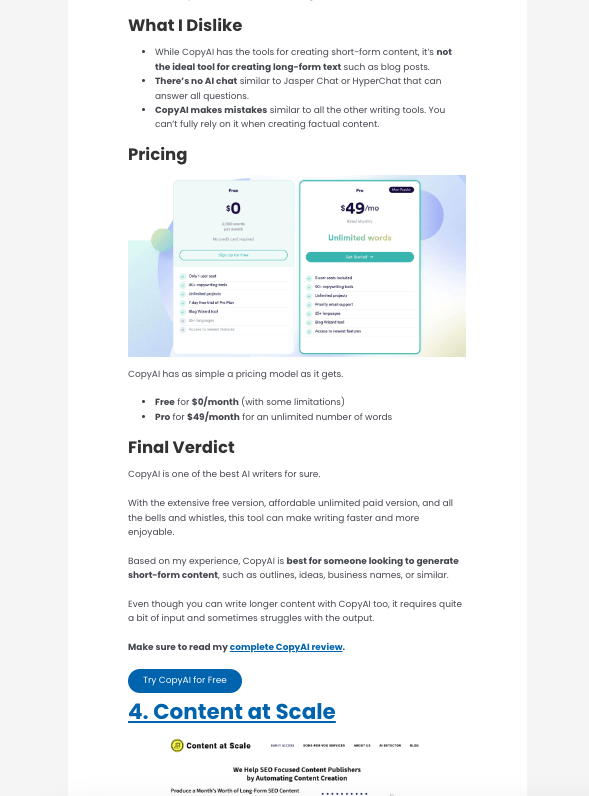
5. Optimizing for Visibility
These days, blogging is far less technical than it used to be.
Back in the day, SEO or Search Engine Optimization was a big thing.
Without clever SEO strategies, one couldn’t really make a blog stand out from the masses.
But these days blogging is no longer about SEO.

Instead, it’s about writing quality content that solves niche-specific problems.
Of course, a site needs to load fast, look decent, be safe, etc. But these are all taken care of behind the scenes by those website-building companies and tools.
I love this because it lowers the entry to the blogging game!
Instead of having to worry about SEO skills or coding, one can just set up a blog in 15 minutes and start writing.
The only “technical” part of blogging is finding those in-demand topics with tools like Google Search or Trends.
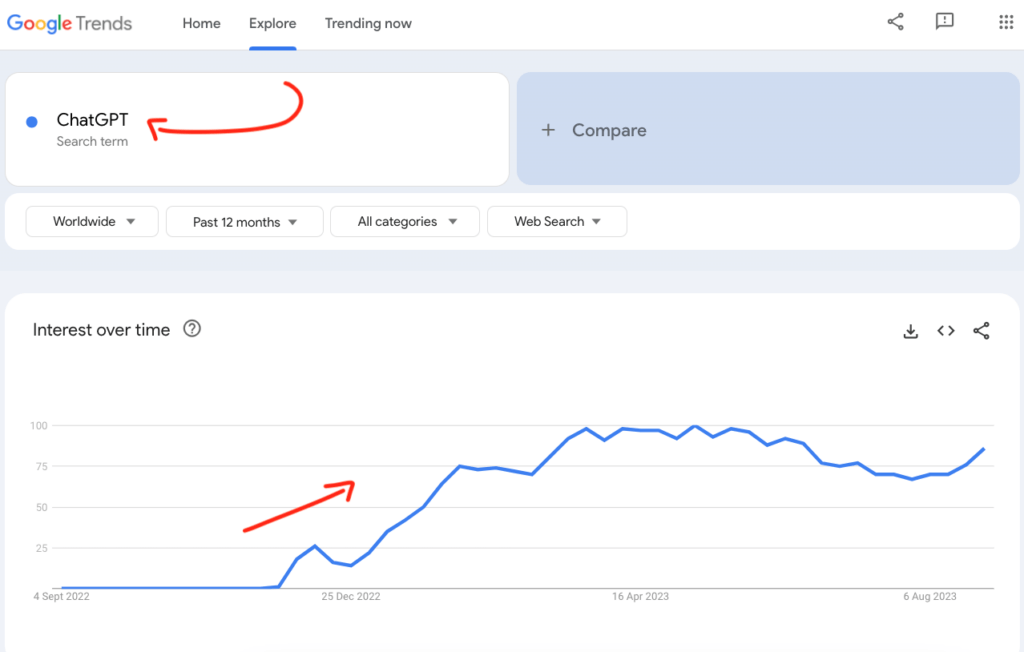
Then the rest is all about working hard and providing the best answer to a searcher’s question.
This happens by writing informative posts that cover a topic from A to Z and being the best resource on the internet.
6. Monetization & Affiliate Marketing

But how do bloggers make money?
A blog is just a website and the sky is the limit where it will grow. What was originally just a blog might turn into a much bigger business.
But for simplicity, if we only consider blogging, the most common monetization strategies are:
- Ads
- Affiliate marketing
- Info products
Of course, there are other popular options out there. But these three are the most passive and scalable.
#1 Ads
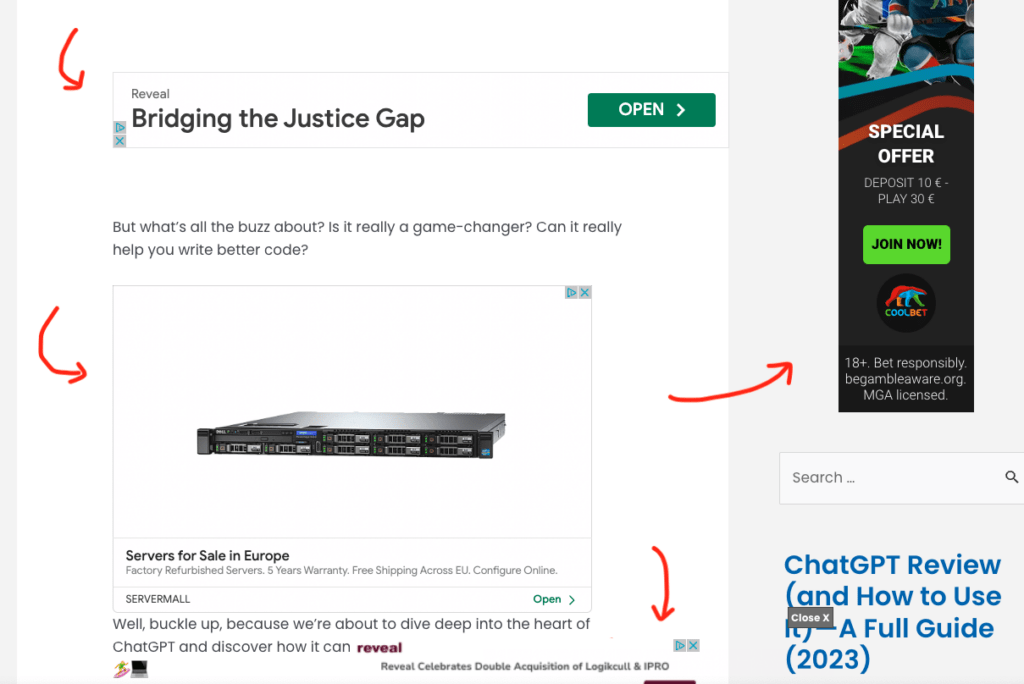
Ads only require a ton of traffic.
Then a blogger chooses an ad network and they will take care of setting up and optimizing ads for the blog.
The more visitors, the more the ads typically earn.
⚠️ Ads aren’t the best blog monetization strategy.
Sometimes they might crash the site. Even if they don’t, they will earn very poorly.
Make sure to read my post about why ads aren’t a good blog monetization strategy anymore.
#2 Affiliate Marketing
Affiliate marketing is my favorite blog monetization strategy.
It’s a simple strategy but requires a bit more work.
Learn how to start an affiliate site
A blogger who gets a ton of visitors to a website can start partnering with companies in the niche and promote their products.
Affiliate marketing means promoting a product on a blog post through a special link.
If someone clicks that link and makes a purchase, the blogger earns a small commission.
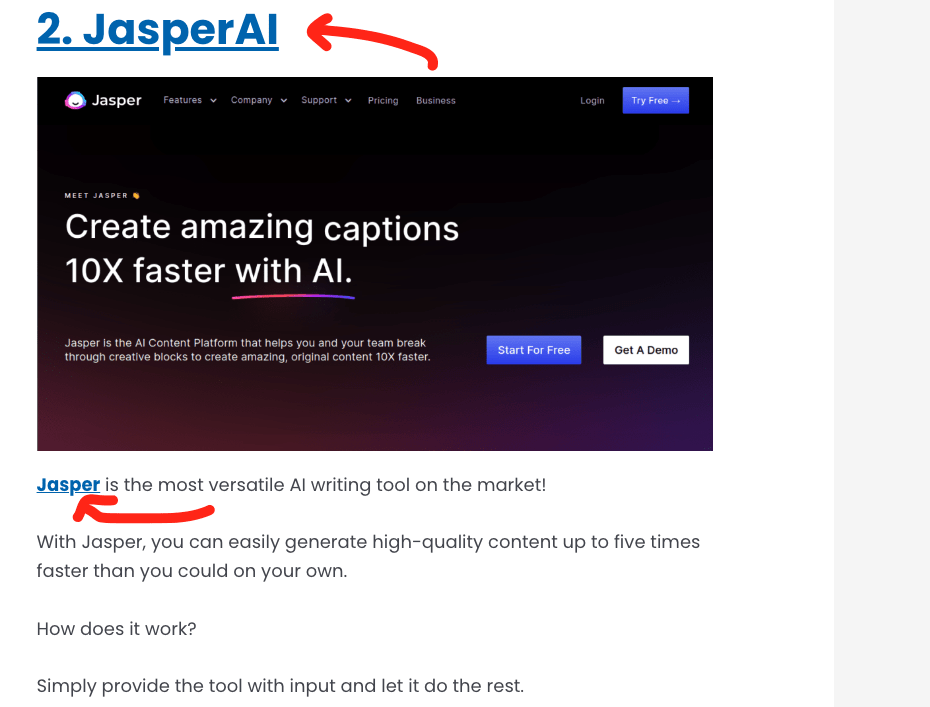
Affiliate programs are easy to join and only take 5-10 minutes to fill in a form.
But getting first sales can be hard.
But unlike one might imagine, affiliate marketing is not just about placing links everywhere. It’s not advertising.
Instead, bloggers use specific blog post types to target a “hot audience” that’s ready to make purchases and only promotes products for those.
This takes at least a couple of months to learn, but once it’s clear, a blogger can write affiliate posts with relative ease from time to time.
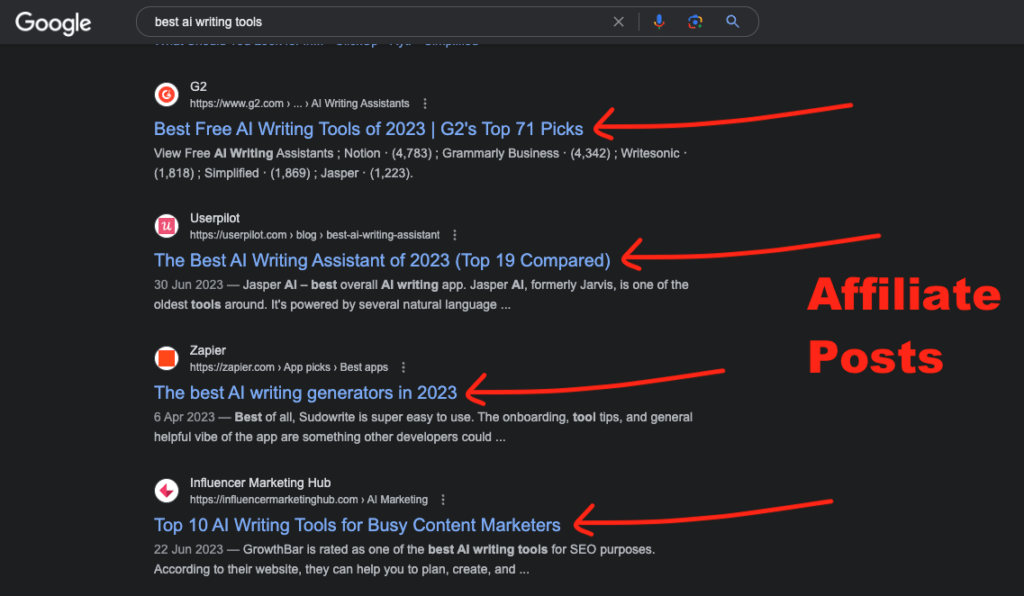
#3 Info Products
Last but not least, a bit more advanced monetization strategy is info products.
This is a strategy that can boost the blog earnings by an order of magnitude.
The idea is that bloggers learn the niche they’re working in so well that they can put together a product like a course, program, or ebook and sell it to the audience.
This requires a ton of traffic, knowledge, and some marketing skills as well.
It’s a bit more advanced strategy and not all blogs implement this. But for many, it can be a game changer.
For example, I’m selling a blogging course on this blog you’re reading right now. 🙂
Speaking of which, I highly recommend checking my free blogging training video. There I teach everything you need to know to start a successful blog.

7. Continuous Learning & Adapting
Blogging requires staying ahead of the curve.
One needs to know the current trends and events in the niche they’re writing about.
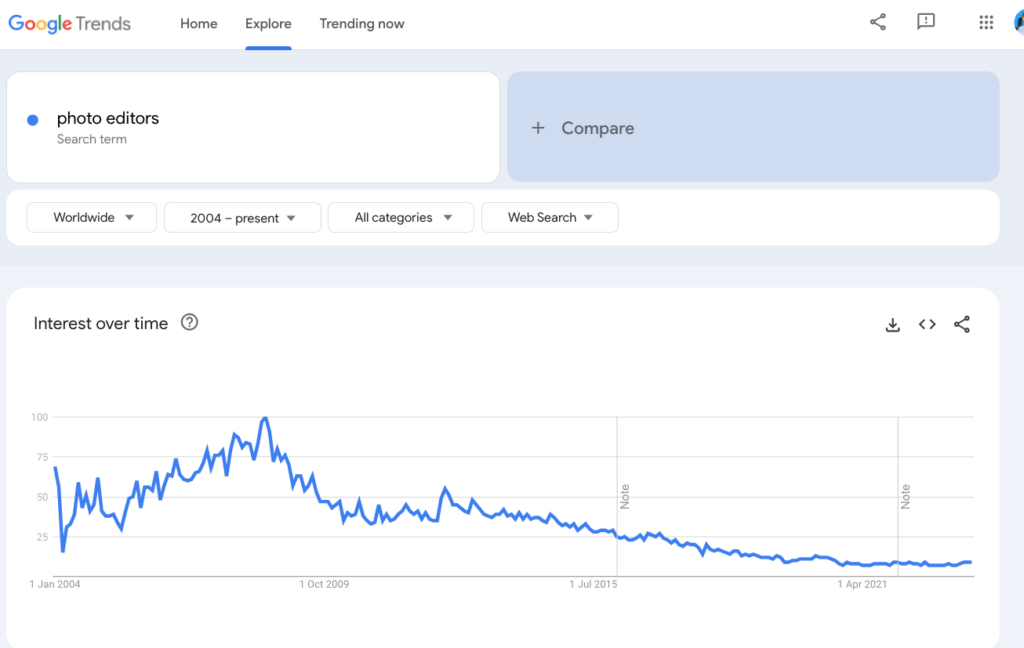
Also, blogging itself is a skill that one needs to refine all the time.
For example, you still see a ton of people talking about SEO and expensive SEO tools.
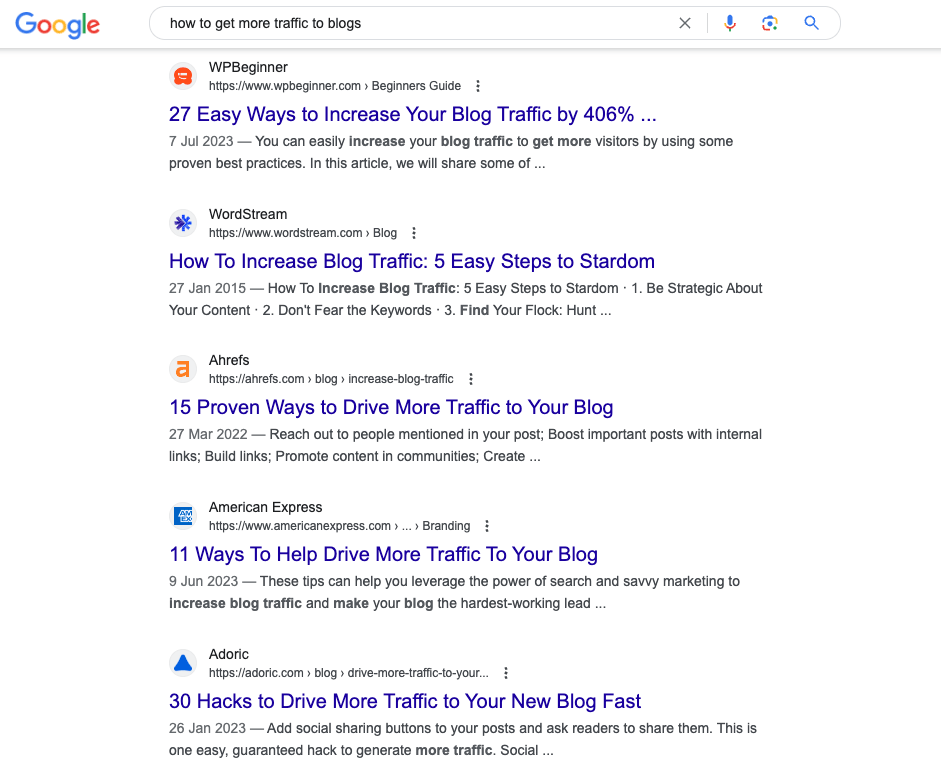
Those worked 3-5 years ago.
But today, those SEO strategies are no better than just writing blogs without those.
Also, think about how fast AI came into the scene.
These days, AI tools like ChatGPT can help write blog post outlines, image descriptions, titles, and more.
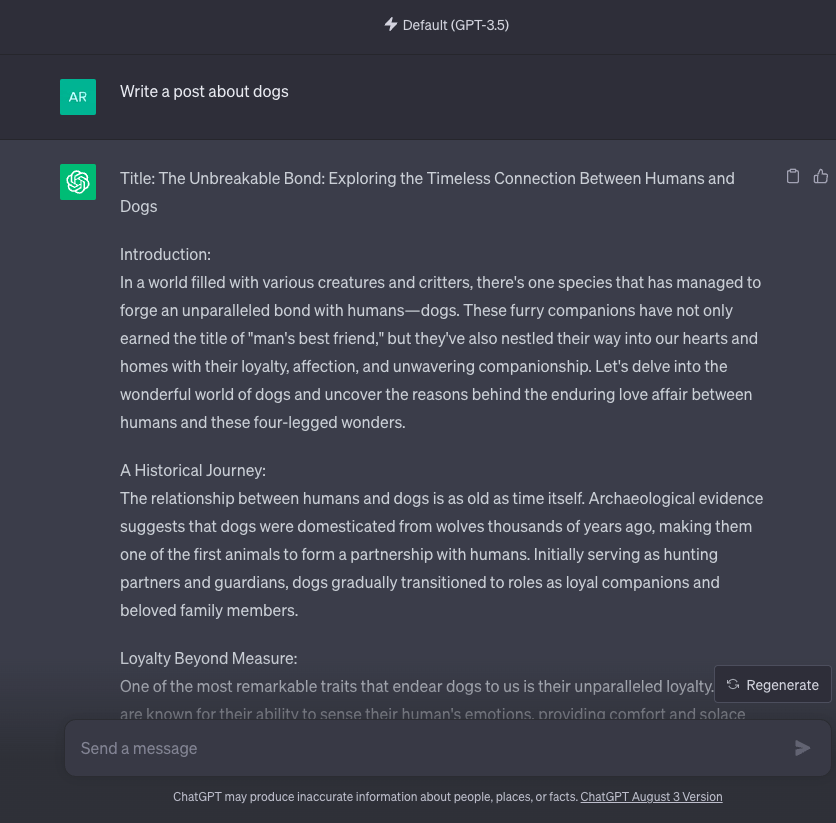
In some cases, they can even help write parts of content.
Thus, following some blogging channels and news is necessary.
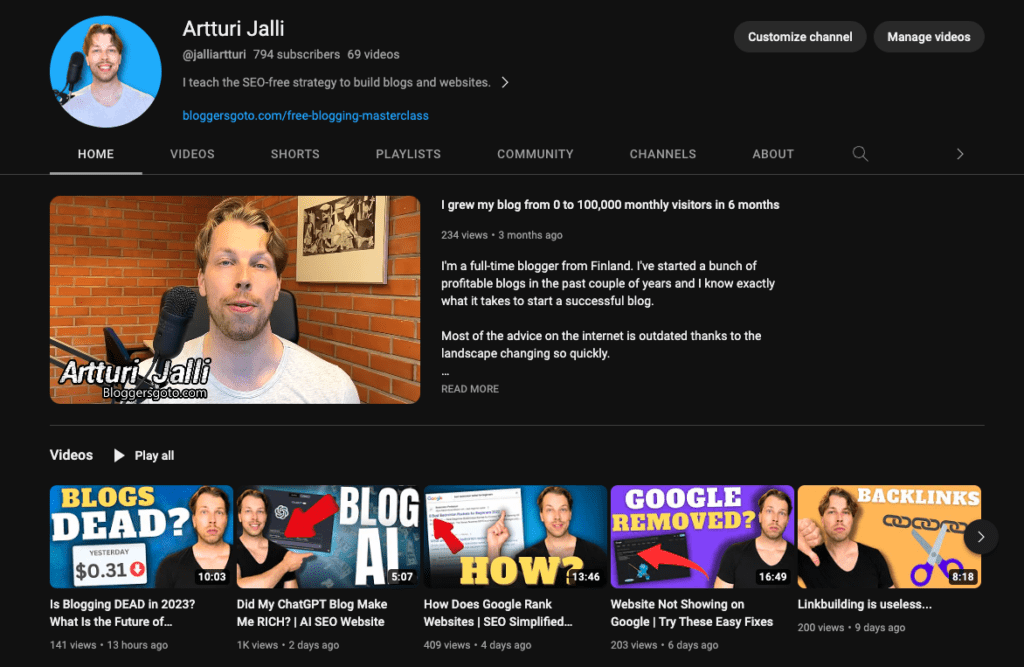
The game changes so quickly that it’s not a good idea to just write for say 3 years straight.
One always needs to learn and adapt to change.
8. The Challenges & Rewards of Blogging
The biggest challenge in blogging is the time it takes to get visitors.
Many beginner bloggers think that it’s just enough to write a blog post every now and then and get a ton of visitors.
But in reality, in many niches, it requires full-time work and writing hundreds of quality posts.
This is so easy to miss.
But unfortunately, because of this, many bloggers give up way too early.
So if you’re considering blogging, remember that it’s a long grind.
It takes months or even years to build trust in the eyes of Google to get posts to rank.
For one of my smaller niche sites, it took about 16 months before I got 10k+ visitors a month!
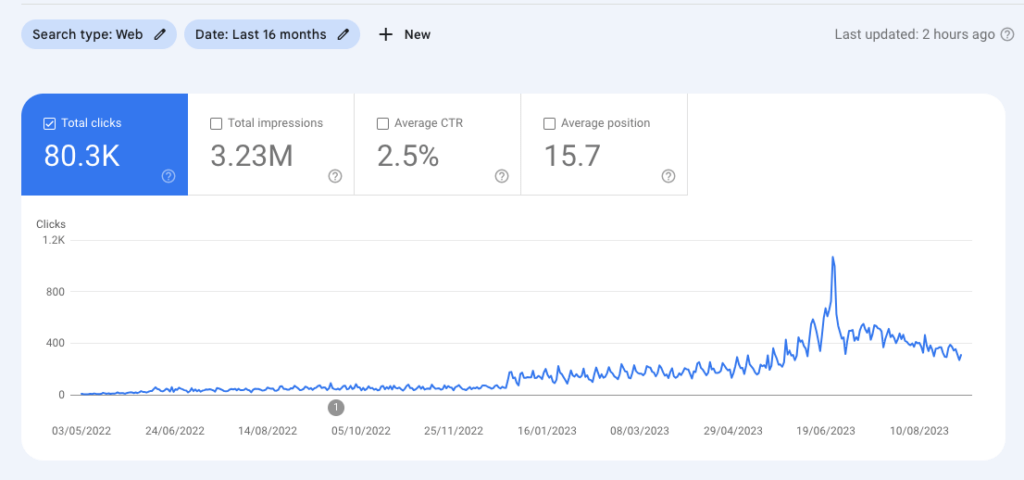
There’s no way around it other than just write as much content as possible.
9. Future of Blogging
Blogging has a bright future.
For a long time, there will be people searching for information online.
Bloggers are the ones who pour in new information and thoughts, help make purchase decisions, and overall shape the internet.
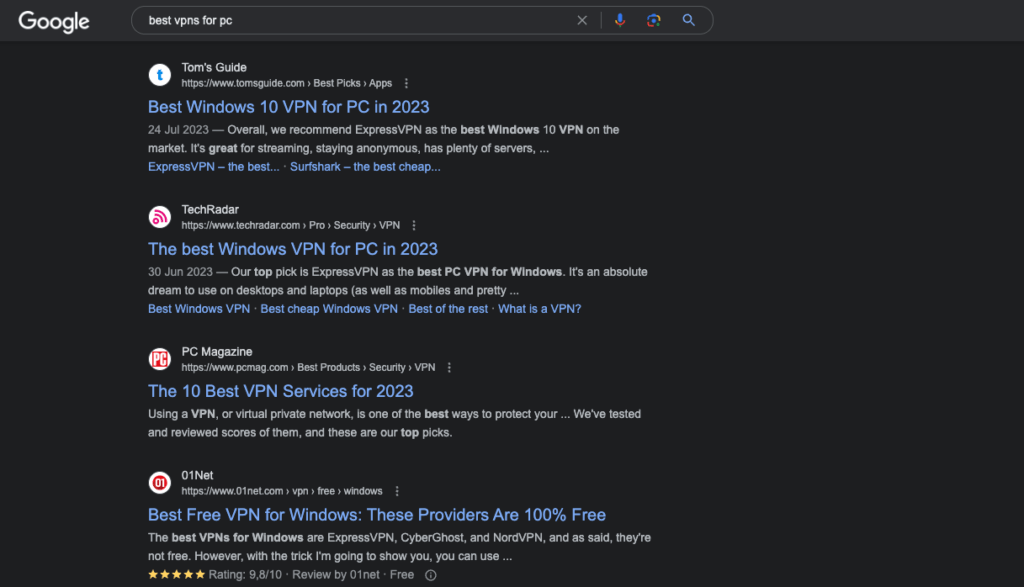
There’s always room for new bloggers.
Most niches are littered with poor, low-quality, AI-written content. There’s always room to improve the internet.
If you’re interested in blogging, make sure to bookmark this site and follow my blog.
Thanks for reading. Happy blogging!
